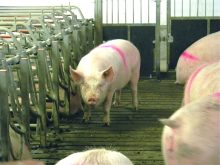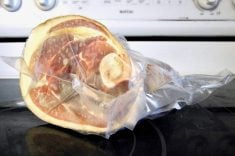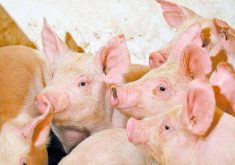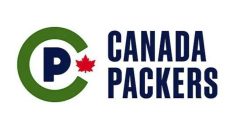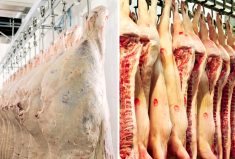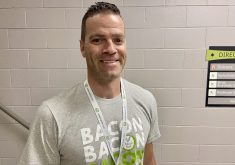Hog producers in Iowa and Minnesota aren’t pleased with U.S. changes to meat labelling that could have spillover effects into Canada, representatives told Manitoba Pork’s gathered membership in mid-April.
“As pork producers, we love the trade,” said Aaron Juergens, an Iowa hog farmer and director with the Iowa Pork Producers Association.
WHY IT MATTERS: Canada’s livestock sectors vividly remember the years-long fight against VCOOL’s mandatory predecessor.
Read Also
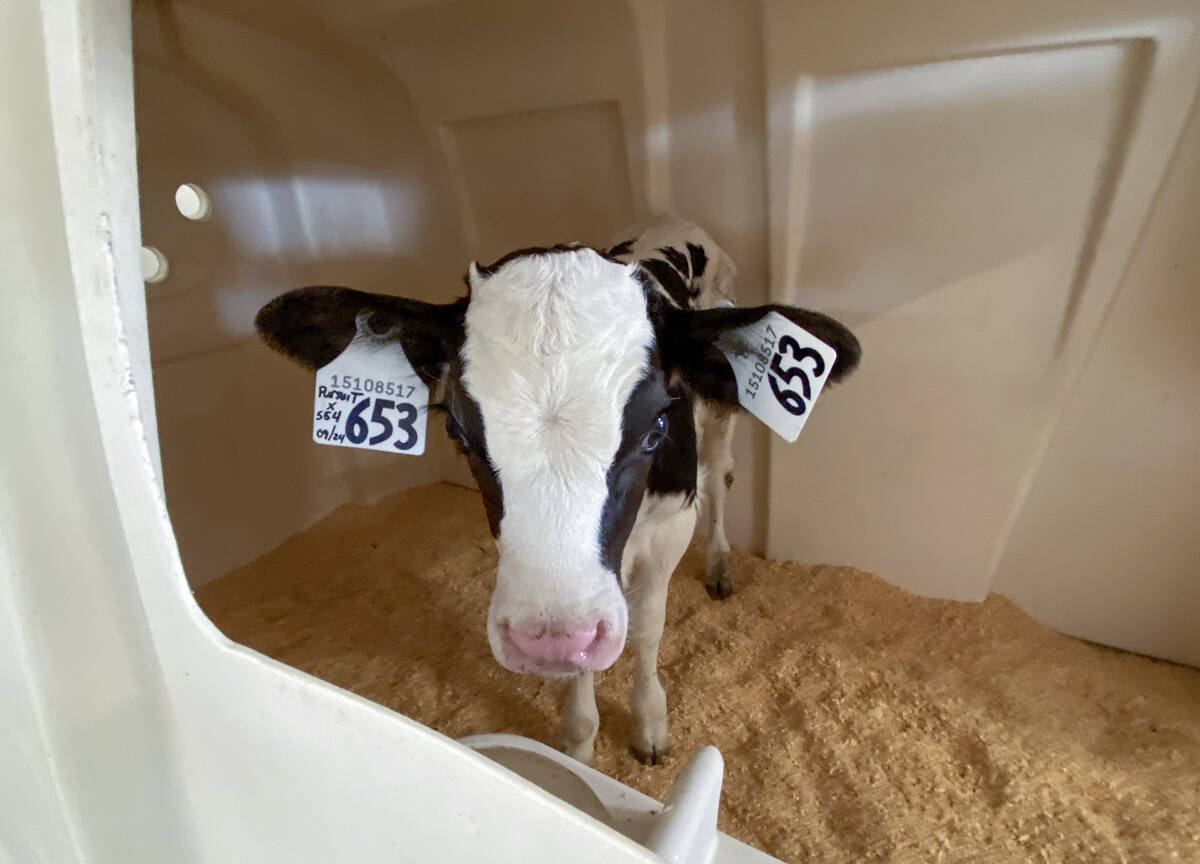
Lactanet turns methane expertise into business opportunity
Lactanet’s new fee-for-service breeding tool initiative to reduce greenhouse gas emissions in Canadian and Swiss Holstein herds will launch in April 2026.
Juergens spoke alongside Manitoba Pork Council chair Rick Préjet and John Anderson, a Minnesota pork producer and president of the Minnesota Pork Producers Association. The trio formed a producer panel at Manitoba Pork’s annual meeting in Winnipeg April 13.
Juergens and Anderson updated the group on developments in voluntary country of origin labelling requirements (VCOOL), and on a U.S. Supreme Court battle over California’s Proposition 12, commonly referred to as Prop 12.
In March, the Biden administration proposed rules that would require any meat, poultry or eggs labelled as a U.S. product to be raised and slaughtered in the country, not just processed.
Previous mandatory country of origin labeling (COOL) made American buyers shy away from Canadian animals as they were forced to segregate them from American ones. The concern is that VCOOL could have similar effects. Deliberations over the rule are ongoing.
COOL was repealed in 2015 following years of dispute brought before the World Trade Organization by Canada and Mexico against the U.S.
While American cattle groups have cheered VCOOL, hog groups aren’t on board, Anderson and Juergens said.
The support is “not coming from producers. It’s coming from more the people who want to know where their food is coming from,” Anderson said.
From their point of view, they can’t afford disruptions in shipment of Manitoban isoweans, Juergens said.
The Iowa Pork Producers Association isn’t hearing that grocers want to use country of origin labels, said Pat McGonegle, the organization’s CEO. However, these are regional chains.
In response to a question from the floor, McGonegle encouraged Canadian groups to get involved in advocacy in the U.S., and engage with the National Pork Producers Council and American farmers with whom they have relationships.
Prop 12
Controversial California Prop 12 remains before the Supreme Court, but hog groups are gearing up for a further fight, producers heard.
The American pork industry sued California for the 2018 initiative, which saw sale of pork, veal and eggs barred in the state unless it came from animals housed according to California’s space requirements. For hogs, that meant sows must have a minimum of 24 square feet of living space, according to California Department of Food and Agriculture documents.
Canada exports millions of weanlings to the U.S. each year. If Prop 12 stands, there is concern those exports may decrease because Canadian housing standards don’t comply with California’s requirements.
At least a dozen states have similar bills that will automatically come into effect if Prop 12 passes at the Supreme Court, Juergens said.
“This is just the start,” he said. “It’s somewhat scary.”
“I worry about our state,” added Anderson. “If they (animal welfare activists) could pull something off in the No. 2 hog-producing state in the country, I think that would be a big win for them.”
The current state government seems unfriendly to hog producers, he said. Groups are getting their war chests ready for a fight.
Juergens estimated that American farmers raise enough hogs to meet California’s needs and requirements, but barns will need to be upgraded if other states apply the same standard. Anderson said that suggestion was optimistic.
When asked if the market was trending toward more open housing anyway. Juergens said that in his opinion that serves a niche market but most consumers simply want cheap, nutritious and delicious pork.
In 2014, codes of practice published by Canada’s National Farm Animal Care Council gave the sector until 2024 to transition barns to open sow housing. In 2020, the results of a five-year review proposed extending that deadline to 2029. After a public comment period, however, the committee responsible for amending the pig code could not agree on changes. The council’s board later decided that changes would be “temporarily set aside pending NFACC undertaking a full review of its governance processes,” the organization’s website states.






